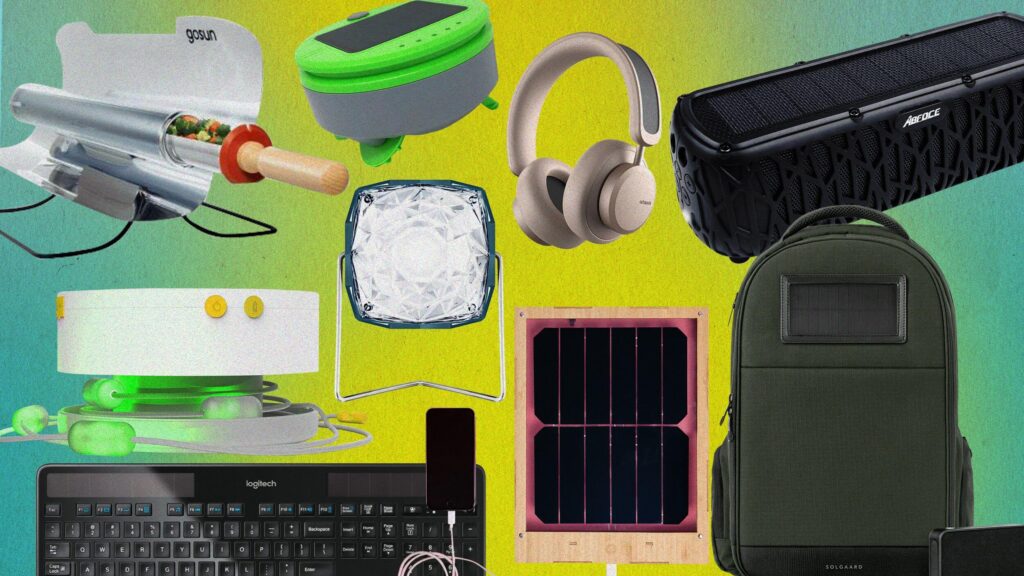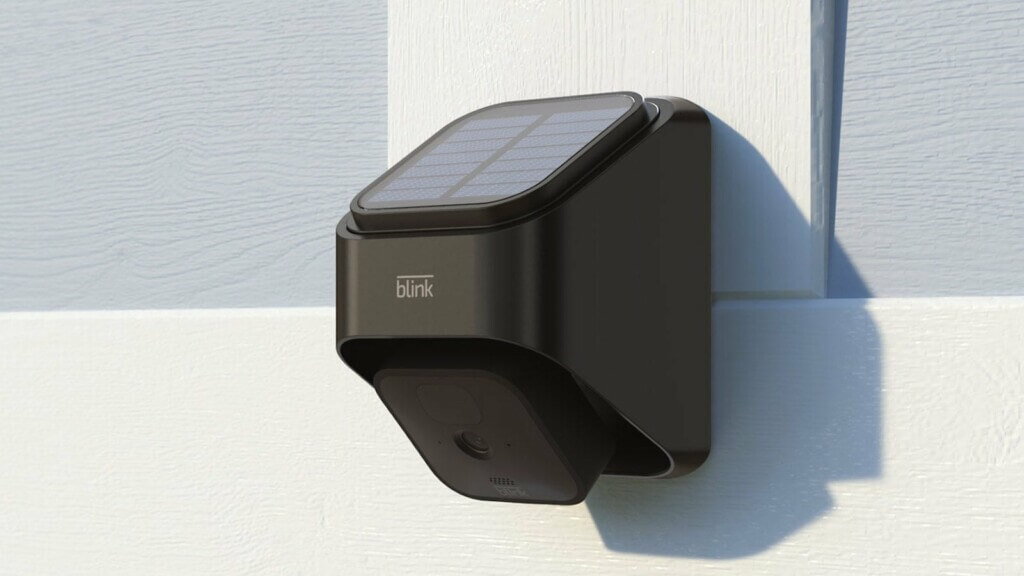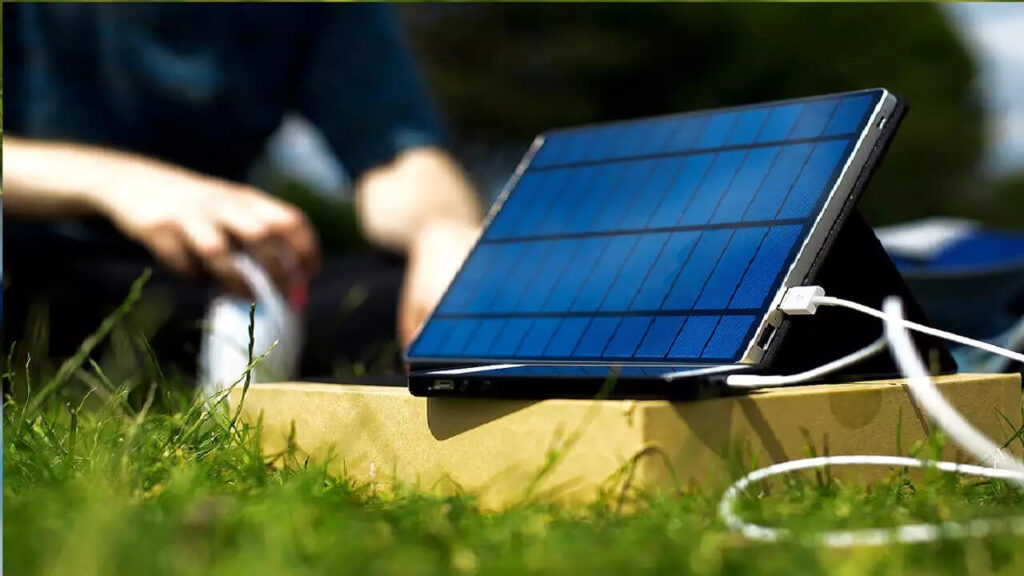Hey there, eco-warriors and tech enthusiasts! Ready to dive into the sunny world of solar-powered home gadgets? We’re about to embark on a journey where the sun not only powers our days but also illuminates our nights and heats up our water. Brooklyn, New York, with its vibrant neighborhoods, is no stranger to the solar revolution, and today, we’re here to unravel the secrets of troubleshooting and repairing these green-tech wonders.
Common Solar-Powered Home Gadgets

Solar Panels
Ever heard of the magic behind those sleek solar panels? It’s all in the photovoltaic cells. These little wizards convert sunlight into the electricity that powers your crib. But, what if your panels are slacking off?
| Issue | Solution |
| Lack of Power Generation | Check sunlight exposure and clean panels regularly |
| Electrical Issues | Inspect wiring connections and inverter function |
| Physical Damage | Identify damages and repair or replace components |
Types of Solar Panels
Not all solar panels are created equal. Monocrystalline, polycrystalline, thin-film – it’s like picking flavors for your solar ice cream. Each type has its perks and quirks. When troubleshooting, knowing what you’ve got on your roof is key.
Solar-Powered Lights
Garden Lights, Pathway Lights, Security Lights
Ah, the ambiance of solar-powered lights. Whether you’re creating a fairy-tale garden or ensuring your porch is burglar-free, these lights are the unsung heroes of your outdoor space. But what if they start playing hide-and-seek with the light?
| Issue | Solution |
| Inadequate Lighting | Check battery health and light placement |
| Faulty Light Sensor | Inspect and replace or adjust the light sensor |
| Water Damage | Secure lights from the elements and repair |
Solar Water Heaters
Types of Solar Water Heaters
Diving into warm water straight from the sun? That’s the dream. But, like any dream, it can turn into a nightmare if your solar water heater isn’t pulling its weight.
| Issue | Solution |
| Insufficient Hot Water | Verify sunlight exposure and check circulation |
| Leaks and Drips | Locate and repair or replace leaking components |
| Pump Malfunctions | Assess pump functionality and repair or replace |
Troubleshooting Solar Panels
Lack of Power Generation
So, your solar panels are soaking up the sun but not flexing their power muscles. What gives?
- Assessing Sunlight Exposure:
- Problem: Are your panels shaded or obstructed? Even a little shadow can throw a shade on their performance.
- Solution: Trim those branches or rearrange your rooftop furniture to ensure maximum exposure.
- Cleaning Solar Panels:
- Problem: Dust and grime can dim your panels’ enthusiasm. A dirty surface means less sunlight conversion.
- Solution: Regularly clean your panels with a gentle touch – a simple hose-down or a soft brush should do the trick.
Electrical Issues
Lights on, nobody’s home? Time to play detective with your solar panel’s wiring and inverter:
- Checking Wiring Connections:
- Problem: Loose or damaged wires can interrupt the flow of energy. It’s like a traffic jam on the solar highway.
- Solution: Tighten loose connections and replace damaged wires. Easy-peasy.
- Assessing Inverter Functionality:
- Problem: The inverter converts DC to AC – crucial for your home gadgets. If it’s on strike, so are they.
- Solution: Check the inverter display for error codes and consult the manual. If it’s beyond repair, a replacement might be in order.
Physical Damage
Sometimes, solar panels face the wrath of nature or the occasional rogue frisbee. Let’s tackle those battle scars:
- Identifying Damages:
- Problem: Cracks, chips, or shattered glass? Your panels might be wounded.
- Solution: Perform a visual inspection. Minor damages can be sealed with solar sealant, while major ones might require professional help.
- Repairing or Replacing Damaged Components:
- Problem: A damaged panel component can drag down the entire system.
- Solution: Replace damaged cells or modules. If it’s beyond your toolkit’s capability, call in the cavalry – a solar technician.
Troubleshooting Solar-Powered Lights

Inadequate Lighting
So, your garden or pathway is not exactly glowing like a scene from a fairytale? Time to troubleshoot those solar-powered lights:
- Checking Battery Health:
- Problem: Dim lights? Your batteries might be feeling a bit drained.
- Solution: Swap out old batteries for fresh ones. Rechargeable batteries are your best pals here.
- Checking Light Placement:
- Problem: If your lights aren’t catching enough sunlight during the day, they won’t shine bright at night.
- Solution: Reposition your lights for optimal sunlight exposure. Trim those overgrown bushes if they’re stealing the spotlight.
Faulty Light Sensor
Lights playing hide-and-seek, turning on when they shouldn’t or staying off when needed? Let’s shed some light on this issue:
- Inspecting Light Senso:
- Problem: A wonky light sensor can mess with your lights’ on-off game.
- Solution: Clean the sensor from dirt and debris. If that doesn’t do the trick, consider adjusting or replacing the sensor.
Water Damage
Outdoor lights are tough, but they can’t swim. Let’s tackle the effects of rain, snow, or any water-related mishaps:
- Securing Outdoor Lights from Elements:
- Problem: Water damage can lead to short circuits or corroded components.
- Solution: Ensure your lights are weatherproof. Seal any exposed wires and components. If water has already infiltrated, dry the lights thoroughly.
- Repairing Water Damage:
- Problem: If water has left its mark, it’s time for a rescue mission.
- Solution: Disassemble the lights, let them dry completely, and replace damaged parts. Apply a water-resistant coating for future protection.
Troubleshooting Solar Water Heaters
Insufficient Hot Water
Dreaming of a toasty shower powered by the sun, but reality is giving you cold feet? Let’s troubleshoot that solar water heater:
- Verify Sunlight Exposure:
- Problem: Not enough heat? Your solar collector might be craving more sunlight.
- Solution: Trim any shading vegetation and ensure your collector has uninterrupted sunlight. A sun-deprived collector won’t heat your water effectively.
- Checking Circulation System:
- Problem: Your water isn’t circulating properly, leaving you with lukewarm disappointment.
- Solution: Inspect the pump and ensure it’s functioning. Airlocks or blockages might be hindering circulation – purge air or clear obstructions for a smooth flow.
Leaks and Drips
Water is fantastic when it stays where it should. If you find mysterious puddles around your solar water heater, it’s time for some detective work:
- Locate and Identify Leaks:
- Problem: Leaks can dampen your solar water heating parade.
- Solution: Inspect all connections, valves, and the tank for leaks. A keen eye can pinpoint the source. Seal minor leaks with appropriate sealants, and replace faulty components for major leaks.
Pump Malfunctions
The heart of your solar water heating system is the pump. If it’s not beating right, your water won’t be dancing to the solar tune:
- Assess Pump Functionality:
- Problem: If your pump is snoozing, your water won’t be moving.
- Solution: Check for any visible issues like loose connections or damaged wiring. If all seems fine, it might be a faulty pump – consider repairing or replacing it.
- Replacing or Repairing Faulty Pumps:
- Problem: Sometimes, the pump itself is the culprit.
- Solution: If the pump is beyond repair, a replacement is in order. Ensure the new pump matches the specifications of your solar water heating system.
General Maintenance Tips

Regular Cleaning
Think of your solar gadgets as sunbathing enthusiasts; they love a clean surface. A layer of dirt or grime can act like sunscreen, reducing their efficiency.
Recommended Cleaning Agents:
- For Solar Panels:
- Use a mixture of water and mild detergent.
- Avoid abrasive materials to prevent scratches.
- For Solar Lights:
- Wipe surfaces with a damp cloth regularly.
- Clean solar panels and sensors for optimal performance.
- For Solar Water Heaters:
- Keep the collector and glass cover clean to maximize heat absorption.
Monitoring Battery Health
Understanding Battery Lifespan
Batteries are the heartbeat of your solar setup, storing energy for those cloudy days. Regular checks ensure they’re ready to kick in when needed.
Testing and Replacing Batteries:
- For Solar Lights:
- Rechargeable batteries may need replacing every 1-2 years.
- Use high-quality rechargeables for longer lifespan.
- For Solar Water Heaters:
- Check backup battery systems regularly.
- Replace aging batteries to prevent system failures.
Updating Firmware and Software
Benefits of Updates
Just like your smartphone, solar gadgets benefit from software updates. These updates often include performance improvements, bug fixes, and enhanced features.
How to Update Solar Gadgets:
- For Solar Panels:
- Check the manufacturer’s website for firmware updates.
- Follow the provided instructions for a seamless update.
- For Solar Lights:
- If applicable, connect lights to a computer for firmware updates.
- Ensure compatibility with the latest software versions.
- For Solar Water Heaters:
- Consult the user manual for guidance on updating the system’s software.
- Schedule updates during periods of low energy demand.
Safety Measures
Working with Electrical Components
Safety Gear Checklist:
- Insulated Gloves:
- Protect your hands when dealing with electrical connections.
- Safety Goggles:
- Shield your eyes from potential sparks or debris.
- Rubber Mats:
- Place beneath your feet for an added layer of protection.
Switch Off Before You Touch:
- Solar Panels:
- Disconnect from the inverter to cut off power supply.
- Solar Lights:
- Turn off the lights and disconnect from any power source.
- Solar Water Heaters:
- Shut off the system and ensure the pump is powered down.
Handling and Disposing of Batteries
Battery Safety Basics:
- Proper Storage:
- Store batteries in a cool, dry place away from direct sunlight.
- Avoid Water Exposure:
- Keep batteries away from water to prevent short circuits.
Disposal Guidelines:
- Rechargeable Batteries:
- Check for recycling programs in your area.
- Many electronics retailers offer battery recycling services.
- Non-Rechargeable Batteries:
- Dispose of in accordance with local regulations.
- Many areas have designated battery drop-off points.
Contacting Professionals for Complex Repairs
Recognizing Your Limits:
- Solar Panels:
- If the issue involves electrical wiring or the inverter, seek professional help.
- Structural damage may also require a technician’s expertise.
- Solar Lights:
- If internal components are damaged or the issue persists, consult a professional.
- Some solar lights may have non-user-serviceable parts.
- Solar Water Heaters:
- Pump or circulation system issues may require a specialized technician.
- Complex leaks or damages should be addressed by a professional.
Final Words
Think of your solar gadgets as green companions – they thrive on attention. Regular cleaning, monitoring battery health, and keeping software up-to-date ensure they operate at their best. A little love goes a long way in the world of solar.
You’re not just fixing gadgets; you’re contributing to a sustainable lifestyle. Every ray of sunlight harnessed and every watt saved is a step towards a greener, more eco-friendly future. So, keep shining and sharing the solar wisdom!
As you continue this solar-powered journey, remember the power is in your hands. Troubleshoot, repair, and bask in the glow of your solar triumphs. Until next time, keep those solar vibes alive and well!
Frequently Asked Questions (FAQ)
Q1: Why should I troubleshoot and repair my solar gadgets?
A1: Troubleshooting and repairing your solar gadgets can save you money, enhance gadget performance, and contribute to a sustainable lifestyle. It empowers you to address common issues, ensuring your solar panels, lights, and water heaters operate efficiently.
Q2: How often should I clean my solar panels?
A2: Regular cleaning is crucial for optimal solar panel performance. Aim for at least twice a year, but increase frequency if you notice a decrease in power generation. Use a gentle cleaning solution and avoid abrasive materials to prevent scratches.
Q3: What should I do if my solar lights aren’t working well?
A3: Start by checking the battery health and ensuring proper sunlight exposure. Clean the solar panels and sensors regularly. If issues persist, inspect and possibly replace the light sensor. Make sure the lights are protected from water and adverse weather conditions.
Q4: Can I troubleshoot and repair solar water heaters myself?
A4: Yes, for minor issues like insufficient hot water or leaks, you can troubleshoot and perform basic repairs. However, if the problem involves the pump or complex leaks, it’s advisable to consult a professional technician.
Q5: How do I dispose of old solar gadget batteries?
A5: For rechargeable batteries, check for recycling programs in your area or return them to electronics retailers with recycling services. Non-rechargeable batteries should be disposed of according to local regulations, often at designated battery drop-off points.
Q6: Is it safe to update the firmware/software of my solar gadgets?
A6: Yes, updating firmware and software is generally safe and recommended. It can enhance performance, fix bugs, and add new features. Follow the manufacturer’s instructions and schedule updates during periods of low energy demand for solar water heaters.
Q7: What safety measures should I take when working with electrical components?
A7: Always wear insulated gloves and safety goggles when dealing with electrical components. Ensure power is switched off before touching any parts. Use rubber mats as an additional safety measure. If unsure, consult a professional for electrical repairs.
Q8: When should I contact a professional for solar gadget repairs?
A8: If you encounter issues beyond your DIY skills, such as complex electrical problems, structural damage, or intricate leaks, it’s advisable to contact a professional technician. Your safety is paramount, and experts can address complex issues effectively.